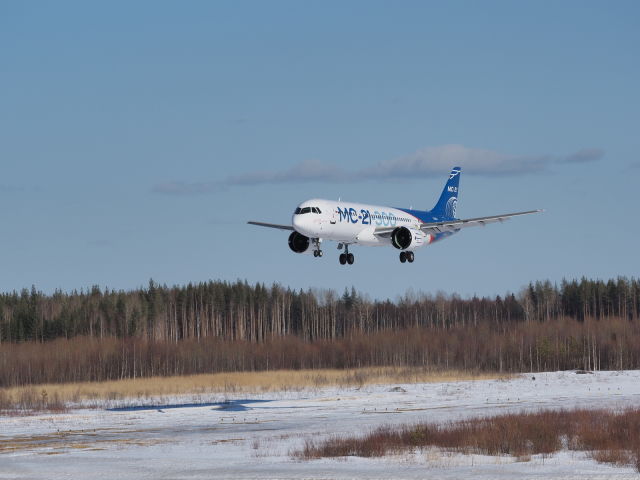PJSC Irkut Corporation (part of the United Aircraft Corporation of the State Corporation Rostec) has successfully completed certification tests of the MS-21-300 airliner under natural icing conditions. The aircraft confirmed the estimated flight performance even with a layer of ice 8 cm thick. This fully complies with Russian and European aviation standards: according to the certification rules, the design characteristics must be maintained with a layer of ice 7.6 cm thick.
The airliner made 14 test flights lasting from 3 to 5 hours over the coast of the White Sea, the Pechora Bay of the Barents Sea, south of Novaya Zemlya, as well as in the area of the Circumpolar Urals. Today, the plane returned from the Arkhangelsk airport to the Ramenskoye airfield in Zhukovsky.
In the spring, under the influence of the White and Barents Seas, multi-layered clouds, frequent precipitation and frontal sections, conditions for the occurrence of aircraft icing are created in this region. The main danger of ice is the distortion of the carefully calculated shape of the wing and other surfaces of the aircraft, as a result of which its flight performance can significantly deteriorate.
Test flights of the MS-21-300 aircraft from the Arkhangelsk airport took place in several stages. At the first stage, based on the data of the weather service, the crew searched for clouds, the icing in which corresponds to the conditions of the certification basis of the aircraft. During the flight in such clouds, the crew used special devices to control the formation of ice on the surfaces of the aircraft. When the required thickness of the ice was reached, the aircraft occupied the specified height, at which the behavior of the machine in the conditions of natural icing was checked. The thickness of the ice layer increased from flight to flight.
In addition to the stability and controllability of the aircraft, the operation of the anti-icing systems of the MS-21-300 aircraft was checked. According to the current regulations, to improve safety during tests, the ability of the aircraft to continue flying with the de-icing system not working is confirmed. Also, in the conditions of icing, the operation of a number of aircraft systems, in particular, external lighting equipment, radio communication equipment and landing gear, was checked.
The flights were carried out by the crew of PJSC Irkut Corporation consisting of test pilot Vasily Sevastyanov, test navigator Sergey Kudryashov, test engineers Nikolai Fonurin and Alexander Popov. Also, the crew included the pilot-certifier of the State Research Institute of Civil Aviation Nikolai Grigoriev.
Representatives of authorized certification centers and the Aviation Register of the Russian Federation participated in the processing of materials received during the flights.

